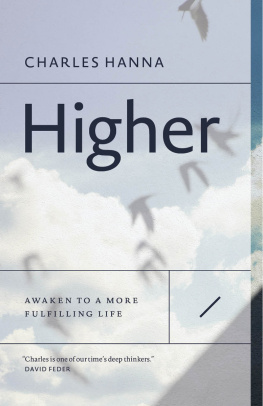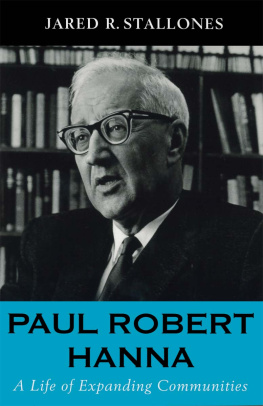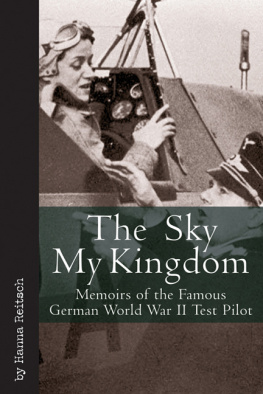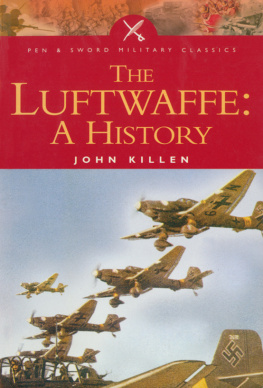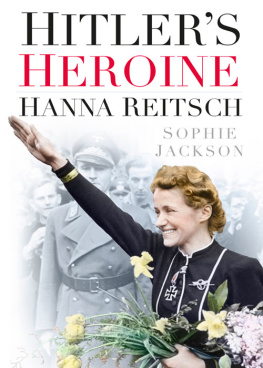
This edition is published by PICKLE PARTNERS PUBLISHINGwww.pp-publishing.com
To join our mailing list for new titles or for issues with our books picklepublishing@gmail.com
Or on Facebook
Text originally published in 1954 under the same title.
Pickle Partners Publishing 2016, all rights reserved. No part of this publication may be reproduced, stored in a retrieval system or transmitted by any means, electrical, mechanical or otherwise without the written permission of the copyright holder.
Publishers Note
Although in most cases we have retained the Authors original spelling and grammar to authentically reproduce the work of the Author and the original intent of such material, some additional notes and clarifications have been added for the modern readers benefit.
We have also made every effort to include all maps and illustrations of the original edition the limitations of formatting do not allow of including larger maps, we will upload as many of these maps as possible.
FLYING IS MY LIFE
BY
HANNA REITSCH
Translated by Lawrence Patrick Roy Wilson
TABLE OF CONTENTS
Contents
THE CHILD THAT WATCHED THE SKY
WHAT child is there that lives, as I did, midway between Reality and Fairyland, that does not long sometimes to leave the familiar world and set off in search of new and fabulous realms?
Such dreams have always visited mankind. They are first born in the open and eager minds of children and find their fulfillment in flying. My parents had shown me as a child the storks in their quiet and steady flight, the buzzards, circling ever higher in the summer air, and so, when I, too, expressed a longing to fly, they took it for a childish fancy that, like so many of our youthful enthusiasms, would be forgotten with the years. But the longing grew in me, grew with every bird I saw go flying across the azure summer sky, with every cloud that sailed past me on the wind, until it turned into a deep, insistent homesickness, a yearning that went with me everywhere and could never be stilled.
My father was an eye specialist and head of a private eye clinic in Hirschberg, Silesia, where we lived. From an early age, I took turns with my brother Kurt to accompany him on his daily rounds in the clinic, regaling the patients with childish gifts which I had made myself and later, when I visited them on my way home from school, with stories of my adventures, both real and imaginary. Thus I soon acquired an interest in my fathers work. For his part, he spared no pains in encouraging me, obtaining, for example, from the butcher the eyes of dead animals to show me their construction and how minor operations could be performed.
In our family, it was accepted as a principle, so obvious as to be unspoken, that a girl could have only one task in life, namely, to marry and become a good mother to her children. Owing to my interest in medicine, however, also to my mothers religious example and the recent experience of my own confirmation, I decided, when I was about thirteen or fourteen, that I wanted to become a doctor not an ordinary one, but a missionary doctor, and not only that, but also, and above all, a flying missionary doctor.
When my father saw the persistence with which I stressed this aspect of my future career, he took me to one side and suggested I make a pact with him. If I could succeed in not mentioning another word about flying until, in two or three years time, I had passed my school-leaving certificate, then he would allow me, as a reward, to partake in a training course in gliding at Grunau, which was not far from Hirschberg and where there was a well-known school for glider pilots. By extracting this promise, my father hoped to make me forget the subject of flying, once and for all.
But though, from then on, I was careful not to allow them to cross my lips, my thoughts and dreams of flying continued, and my father little knew how often I pedaled out secretly to Grunau, to gaze enviously from the road at the slides, hops, and flights of the glider pupils on the Galgenberg. In maintaining my self-imposed silence, a fortunate chance came to my aid. I came across a book of spiritual exercises by Ignatius of Loyola, Meditations , I think they were called, which, young as I was, made a great impression on me. They set out to teach the attainment of self-mastery and the eradication of spiritual faults by means of repeated self-examination. These exercises I undertook with energetic zeal, determining, first, to cure my excessive use of superlatives. It cost me an enormous effort, but, after a while and in spite of many relapses, I was able to record a small improvement, which my mother, who knew nothing of these exercises, to my great joy finally noticed and commented upon.
That small book helped me also to keep silent where I had longed to speak and for a whole two years and more I never once mentioned the subject of flying at home. When I passed my final school examination, my father wanted to present me with an antique gold watch. I quietly returned it to him, reminding him of his promise. I saw him turn pale as he agreed to fulfill itthen my mother clasped me in her arms.
Before I started my medical studies, my parents wished me to attend a School of Domestic Science. I went to the Colonial School for Women at Rendsburg, which had an excellent reputation and could assist me in preparing for my career of medical missionary. Besides cooking and laundry work, we were taught there how to look after chickens, ducks, geese, pigs, and other animals. Cobbling, glazing, and locksmithing were compulsory subjects and we could learn to ride and shoot in our spare time. As the curriculum had been designed to prepare women for life in the colonies, we had also to study English and Spanish and either the language of the Kisuaheli Tribe or of the Herreros of South-west Africa.
Rendsburg is in the Province of Holstein and the school lay on the outskirts of the town, alongside the Kiel Canal. The Navy, therefore, was a constant source of joy to us students. Every warship that came through the Canal knew the girls school and whenever we heard a warning siren in the distance, we would rush pell-mell from kitchen, laundry, garden, and stables to draw ourselves up in line along the bank of the Canal. As it approached, the warship would slacken speed and then go gliding solemnly past us, while from ship to bank and back again rang out our shouts of vociferous greeting.
Our schooling lasted a year and the only notable success I was able to record during the whole of my time there was in an experiment which I conducted with the pigs.
At least twice while we were at the school, each of us had to look after the pigs for a week. It was quite a popular duty so long as they were small and manageable, but as they grew older, they lost their attractive qualities and became really treacherous and savage. The task of tending them then became a hateful one. Perhaps the pigs were disturbed by the repeated change in their keeper, but, whatever the reason for their bad temper, every student who performed that office after they had grown to full size had the most terrifying tales to tell of her charges efforts to bite her, until finally it was decided they must be slaughtered. A week before that was due to occur, the duty of pig-keeper fell to me.
The night before my first meeting with my charges I slept little and at four oclock the following morningan hour before the appointed timeI was already making the first, tentative approaches so that, in the event of mishaps, I should avoid the ridicule of the Superintendent Pig-Keeper who came at five oclock. And so, in wooden clogs and rubber apron and armed with a pitchfork, I set to work in the pigsty. As ill luck would have it, on this particular morning, the inmates were more than usually disgruntled at being disturbed from their slumbers and they fell upon me with a concerted venom. Two of them set about my apron, rending it into tiny shreds, while a third hurled itself at the pitchfork with which I was attempting to ward off his fellow conspirators. With unbelievable strength, he bit the pole in two and then I fled in panic, still clinging to the upper end and slamming the door of the sty behind me.
Next page

